Meet the Experts
Laura Brockway-Lunardi, PhD – National Cancer Institute
Table Topic: Career Path: Alternative Careers – Science Policy, Funding Advocacy and Project Management
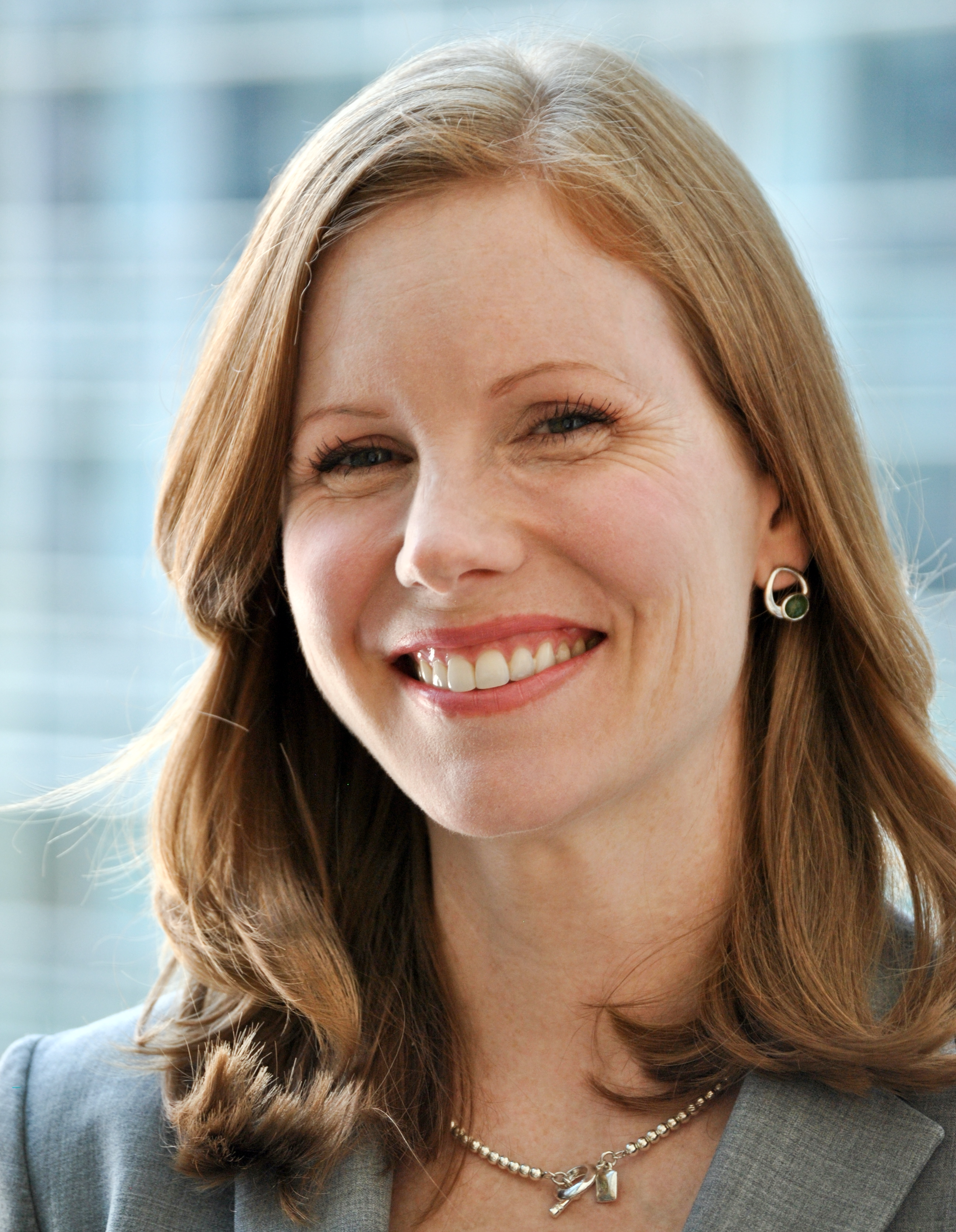 Biography
Biography
Laura Brockway-Lunardi, PhD, joined the National Cancer Institute (NCI) in 2016 with more than 12 years of experience in the non-profit sector, leading scientific programs and science policy initiatives across four different organizations. At the Center for Research Strategy at NCI, Dr. Brockway-Lunardi is part of a team that collaboratively develops recommendations for addressing scientific opportunities, monitors the direction and application of the NCI’s scientific knowledge and resources, and identifies research funding gaps.
From 2009-2016, Laura served as the first Scientific Program Director of the Melanoma Research Alliance (MRA), the largest private funder of melanoma research. At MRA, Laura managed more than $79 million in research funding to investigators worldwide, led the planning and execution of MRA’s annual scientific conference, and assisted in communications and external relations. Prior to joining MRA, Laura was Scientific Program Manager at the International Life Science Institute North America where she coordinated programs on nutrition and health. From 2004-2008, Dr. Brockway-Lunardi was Senior Science Policy Analyst at the Federation of American Societies for Experimental Biology, developing policy recommendations on biomedical research issues including conflicts of interest, scientific publishing, grant review as well as contributing to advocacy efforts for federal research funding.
She was a Christine Mirzayan Science and Technology Policy Fellow at the Government-University-Industry Research Roundtable of the National Academy of Sciences, contributing to their studies of intellectual property in academic-industry relationships and U.S. science and technology competitiveness. Dr. Brockway-Lunardi received her doctorate in Vision Science from the University of Alabama at Birmingham (UAB) with a focus on retinal physiology. At UAB, she was president of the Industry Roundtable, an organization dedicated to fostering a greater awareness of science careers outside academia. She received her bachelor’s degree in biology with honors from Florida State University.
Q & A with Dr. Brockway-Lunardi
Please provide a brief biography of your career and explain the position you currently hold.
"I am a former scientist with more than a dozen years of experience in scientific program management and science policy in the non-profit sector, most recently at the National Cancer Institute. I've led grant-making programs for disease and scientific focused non-profits and have led strategic analysis and planning, project management, scientific communications, conference planning, and advocacy and science policy initiatives."
What does a normal work week look like for you?
"As a new member of the NCI team, I am focused on learning as much as possible and meeting as many people as possible in the organization. Much of my work will be done in the office and in collaboration with NCI staff and leadership."
What do you enjoy about your career now, and is there anything you wish you would have done differently during your career path?
"As a former scientist, I have enjoyed being in positions that accelerate science by providing the tools, funding, and policies that enable scientists to do their work better."
Can you provide a brief summary of what topics you would like to cover at your expert table?
"The focus will be to discuss several types of non-research careers available to scientists and how to transition from the bench to a non-research career, including networking, informational interviewing, internships, and other resources."
Leisha A. Emens, MD, PhD – Johns Hopkins University
Table Topic: Publishing Papers
Biography
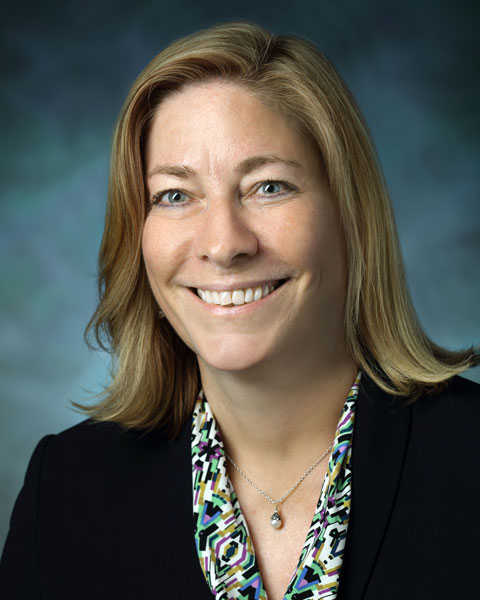 Leisha A. Emens, MD, PhD, is an Associate Professor of Oncology at the Kimmel Cancer Center at Johns Hopkins. She is a medical oncologist who specializes in breast cancer care, and is a member of both the cancer immunology and the breast/ovarian cancer research programs.
Leisha A. Emens, MD, PhD, is an Associate Professor of Oncology at the Kimmel Cancer Center at Johns Hopkins. She is a medical oncologist who specializes in breast cancer care, and is a member of both the cancer immunology and the breast/ovarian cancer research programs.
Her research is focused on developing innovative immune-based therapies that combine cancer vaccines, immune checkpoint inhibitors, and other immune modulators with standard and novel treatments for breast cancer and ovarian cancer. She developed a cytokine-secreting breast cancer vaccine for testing in clinical trials. Using a preclinical murine breast cancer model of antigen-specific tolerance, she develops rational combinatorial immunotherapy strategies to overcome immune tolerance and translates the most promising immunotherapy regimens to the clinic.
Dr. Emens is on the editorial boards of Cancer Research, and the Journal for the Immunotherapy of Cancer. She is immediate past chair of the Stakeholder’s Council of the Society for the Immunotherapy of Cancer, and is a former member of the FDA Advisory Committee on Cellular, Tissue, and Gene Therapies. She is an active member of ASCO, AACR, and SITC.
Bernard A. Fox, PhD – Earle A. Chiles Research Institute
Table Topic: Networking and Developing Successful Collaborations
Biography
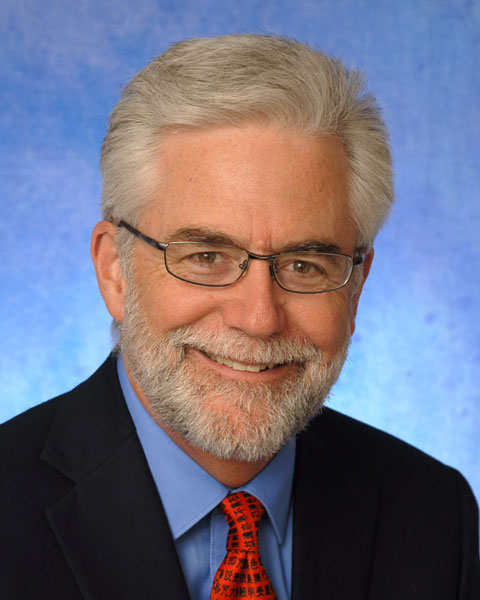 Bernard A. Fox, PhD, is the Harder Family Chair for Cancer Research, Full Member and Chief, Laboratory of Molecular and Tumor Immunology, at the Robert W. Franz Cancer Research Center, Earle A. Chiles Research Institute, Providence Cancer Center. He is also co-founder and CEO of UbiVac, a clinical stage immuno-oncology company and UbiVac-CMV, an R&D stage biotech and is a member and co-leader of the Tumor Immunology Focus Panel for the Knight Cancer Institute and adjunct professor, Department of Molecular Microbiology and Immunology, Oregon Health and Science University.
Bernard A. Fox, PhD, is the Harder Family Chair for Cancer Research, Full Member and Chief, Laboratory of Molecular and Tumor Immunology, at the Robert W. Franz Cancer Research Center, Earle A. Chiles Research Institute, Providence Cancer Center. He is also co-founder and CEO of UbiVac, a clinical stage immuno-oncology company and UbiVac-CMV, an R&D stage biotech and is a member and co-leader of the Tumor Immunology Focus Panel for the Knight Cancer Institute and adjunct professor, Department of Molecular Microbiology and Immunology, Oregon Health and Science University.
His research efforts are divided between preclinical models, the development, performance, and monitoring of cancer immunotherapy trials and the training of the next generation of translational investigators. He has served on review committees for the NIH, FDA, philanthropic and governmental organizations in the USA, Europe and Asia, serves on editorial boards of seven scientific journals, lectures widely, consults for the biotechnology/pharma sector and is an internationally recognized expert on cancer immunotherapy.
Dr. Fox is past President of the Society for Immunotherapy of Cancer and is current Chair of the World Immunotherapy Council, a consortium of 22 national and international cancer immunotherapy organizations. He also serves on the Board of Directors of the Oregon Bioscience Association.
Please provide a brief biography of your career and explain the position you currently hold.
"An aunt with multiple sclerosis stimulated my interest in autoimmunity. For my Master’s thesis I studied the adoptive transfer of T cells to induce EAE. For my PhD I made monoclonal antibodies against activated macrophages. During graduate school, I worked in a transplant program and was responsible for acquiring human thymi (not a fun job) and would vaccinate rabbits to generate anti-human thymocte globulin. This was processed and used to treat rejection episodes following renal transplantation. This experience opened my eyes to the fact that I could do something to benefit patients.
My post doc with Dr. Steven A. Rosenberg cemented that perspective and the 5 years I spent in his group changed my life. The concept that “you” the individual can do much in the way of translational cancer immunotherapy – is a very difficult road. But if “you” can be a team of colleagues that trust each other, share a similar vision and believe, you can accomplish amazing things.
Twenty-two years ago I landed in Portland, OR, and have helped develop an Institute focused on cancer immunotherapy. The goals are to do good basic science, translate that into patients and train the next generation. At the same time we strive to remains as open as possible, shares insights and resources and celebrates our colleagues’ successes."
What does a normal work week look like for you?
"I don’t think that I have a normal week. I may spend 6-10 hours in meetings with students, fellows and scientists. Another 2 to 7 hours is spent on conference calls/Webex with collaborators. While variable, sometime every week is spent interacting with medical colleagues (physicians and nurses) regarding patients on clinical trials (harvest of tumors, shipment/scheduling of vaccines). I also spend time with scientists that work for UbiVac to discuss progress on preclinical studies or a clinical trial.
One of the favorite times of my week are the 90 minutes I spend participating in an Institute-wide lab meeting, where all Institute scientists present and are given feed-back on their projects. When possible, I participate in a weekly city-wide immunology journal club. On balance, I spend too much time trying to keep up with email and not enough time writing. I also do minimal teaching as part of the graduate faculty at OHSU."
What do you enjoy about your career now, and is there anything you wish you would have done differently during your career path?
"I enjoy the same thing that, I believe, many people who have been in the I-O space for more than 30 years enjoy - The success of the field and the impact it is having on some patients with cancer. I love the fact that scientists are feeling more empowered than ever before to push concepts from the lab into translational clinical trials and we have, and are discovering, new insights into why some treatments work and some fail.
I enjoy the fact that my students and fellows, past and present, are doing amazing things and contributing to movement in the field while based in pharmas, biotechs, or academic setting. I enjoy the fact that in many cases, there is less isolation of investigators and more interest in collaborations to advance the field regardless of place of employment or country of residence. One example of that is the SITC-led Global Immunoscore project. If I was to do something differently, I might be more aggressive on pushing some of my “crazy” ideas."
Can you provide a brief summary of what topics you would like to cover at your expert table?
"Empowering PhD scientists to do translational research."
Michael Kalos, PhD – Eli Lilly & Company
Table Topic: Career Path: The Industry Perspective
Biography
Michael Kalos, PhD, joined Eli Lilly in October, 2013. As a member of Lilly’s Research Oncology Division and Chief Scientific Officer for Immuno-oncology, he has been responsible for development of a comprehensive integrated immune-oncology strategy and program at Lilly. Dr. Kalos is a graduate of the University of Minnesota Medical School, where he received his degree from the department of Microbiology with an emphasis in Genetics. He completed postdoctoral fellowships at the Fred Hutchinson Cancer Research Center, where he played a pioneering role in the development of genetic approaches to redirect lymphocyte specificity through transfer of T cell receptor chains.
Following his tenure at the Fred Hutchinson Cancer Research center, Michael moved to Corixa Corporation, a biotechnology company in Seattle, where he played an instrumental role in the discovery and pre-clinical evaluation of novel cancer vaccines for prostate and lung cancer, work that led to a number of issued patents. Prior to joining Eli Lilly, Dr. Kalos spent the past 10 years in academia, at the leading edge of developing and translating immunotherapy strategies to treat cancer, most recently at the University of Pennsylvania School of Medicine where he was critically involved in the translational/clinical development and biomarker evaluation of novel cell based immunotherapeutics, principally using gene-engineered T cells.
Dr. Kalos is a recognized international key opinion leader in the fields of immunotherapy and biomarkers. He has authored multiple high-impact primary and review articles as well as book chapters in the field of cancer immunotherapy, has been an invited speaker at national and international scientific meetings, has been a member of institutional and corporate scientific advisory boards, and is an active member of steering committees for international immunotherapy consortia and working groups.
Q & A with Dr. Kalos
Please provide a brief biography of your career and explain the position you currently hold.
"1990-1994: Postdoctoral Fellow, Program in Molecular Medicine, Division of Basic Sciences, Fred Hutchinson Cancer Research Center, Seattle, WA,
1994-1997: Clinical Research Associate, Program in Immunology, Division of Clinical Research, Fred Hutchinson Cancer Research Center, Seattle, WA,
1997-1999: Staff Scientist, Department of Immunology, Corixa Corporation, Seattle, WA,
2000-2003: Senior Staff Scientist, Department of Immunology, Corixa Corporation, Seattle, WA,
2004-2008: Director of the Clinical Immunobiology Correlative Studies Laboratory, City of Hope National Medical Center, Duarte, CA,
2004-2008: Associate Professor in Residence, Division of Cancer Immunotherapeutics and Tumor Immunology and Division of Hematology and Hematopoietic Stem Transplantation, City of Hope National Medical Center, Duarte, CA,
2005-2008: Co-Director Core E, City of Hope lymphoma SPORE grant,
2006-2008: Director of the Cell Therapeutics QC, City of Hope National Medical Center, Duarte, CA,
2008-present: Director of the Translational and Correlative Studies Laboratory, University of Pennsylvania School of Medicine, Philadelphia, PA,
2009-2013: Adjunct Associate Professor, Department of Pathology and Laboratory Medicine, University of Pennsylvania School of Medicine, Philadelphia, PA,
2013-present: Chief Scientific Officer, Cancer Immunobiology, Lilly Research Laboratories, New York, NY."
What does a normal work week look like for you?
"My week consist of the follow: Project meetings: 3-4 hours/day, Strategy and operational meetings: 2-3 hours/day, Travel- 1 day/week."
What do you enjoy about your career now, and is there anything you wish you would have done differently during your career path?
"I enjoy the ability to drive and influence a corporate strategy in Immuno-oncology. I pursued a thoughtful and goal oriented career development plan."
Can you provide a brief summary of what topics you would like to cover at your expert table?
"Research in Biopharma vs Academia,
Navigating career in academia given current and anticipated future funding limitations,
Transition from academia to industry."
Patrick Ott, MD, PhD – Dana-Farber Cancer Institute, Harvard Medical School
Table Topic: Career Path: How to Kick-Start Your Career in the US – An International Perspective
Biography
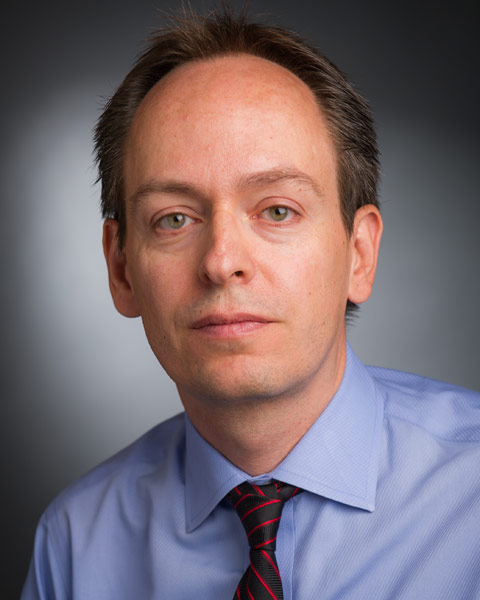 Patrick A. Ott, MD, PhD, received his MD and PhD from Ludwig Maximilians University of Munich, Germany. He completed postdoctoral training in Immunology and residency training in Medicine at Case Western Reserve University. After a fellowship in Hematology-Oncology and four years on the faculty at New York University, he moved to Dana-Farber Cancer Institute (DFCI) in 2012.
Patrick A. Ott, MD, PhD, received his MD and PhD from Ludwig Maximilians University of Munich, Germany. He completed postdoctoral training in Immunology and residency training in Medicine at Case Western Reserve University. After a fellowship in Hematology-Oncology and four years on the faculty at New York University, he moved to Dana-Farber Cancer Institute (DFCI) in 2012.
He is currently the Clinical Director of both the Melanoma Center and the Center for Immuno-Oncology at DFCI, serves as attending physician in the Department of Medicine at Brigham and Women’s Hospital, and has an appointment as Assistant Professor at Harvard Medical School in Boston, MA.
Dr. Ott is a clinical investigator and an integral member of the clinical trials program at Dana-Farber/Harvard Cancer Center, where he designs and conducts phase 1 immunotherapy trials for patients with melanoma and a wide range of other tumors. His primary research interests are in melanoma and immunotherapy, specifically the development of innovative tumor vaccine approaches.
Q & A with Dr. Ott
What does a normal work week look like for you?
"I spend about half of every week seeing patients with melanoma and other cancers, providing routine medical oncology care as well as treating patients on a number of clinical trials, mostly immunotherapy. The remainder of the time I run ongoing clinical trials, which entails administrative work, clinical decision making, telephone conferences, chart review, etc.
I meet with clinical and laboratory investigators to discuss new and ongoing projects of mostly translational nature (for example correlative studies). I write, edit, review and revise manuscripts, grants, clinical trial protocols, new proposals for clinical trials for my own projects, for collaborations, as reviewer for journals and funding agencies. There is also administrative work, institutional committees, etc."
What do you enjoy about your career now, and is there anything you wish you would have done differently during your career path?
"I enjoy being in an environment where discoveries are being made at an incredible pace and seeing these advances directly help my own patients. My fascination with immunology at the outset of my career many years ago, prompting me to pursue a PhD in the field. It is incredibly satisfying to see the work of many, in basic as well clinical research, in the field now come to fruition and am grateful to be right at the center of it."
Can you provide a brief summary of what topics you would like to cover at your expert table?
"I will cover how to start your academic career in the US - an international perspective."
Elizabeth Repasky, PhD – Roswell Park Cancer Institute
Table Topic: Basic-Translational Research in Immunology
Biography
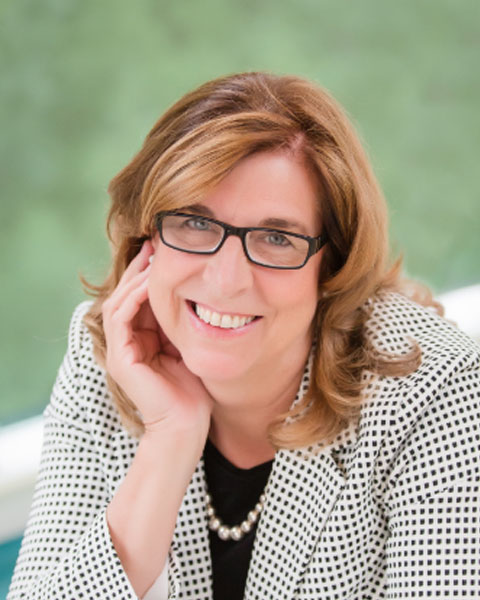 Elizabeth Repasky, PhD, is originally from Greensburg, PA where she received her BA in Biology at Seton Hill College. She earned her MS and PhD degrees in Physiology and in Anatomy and Cell Biology at the State University of New York at Buffalo and subsequently completed a postdoctoral fellowship in Cell Biology at the California Institute of Technology.
Elizabeth Repasky, PhD, is originally from Greensburg, PA where she received her BA in Biology at Seton Hill College. She earned her MS and PhD degrees in Physiology and in Anatomy and Cell Biology at the State University of New York at Buffalo and subsequently completed a postdoctoral fellowship in Cell Biology at the California Institute of Technology.
Currently, she holds the positions of Professor of Oncology, William Huebsch Professor of Immunology and Program Leader for the Cell Stress and Biophysical Therapies Program at Roswell Park Cancer Institute in Buffalo, NY. Dr. Repasky’s translational research program focuses on exploration of physiological host responses which can be manipulated to alter the tumor microenvironment and improve the efficacy of cancer therapies, including immunotherapies. A large amount of effort has been placed on understanding the role of body temperature on anti-tumor immune activity and on vascular function. As a result, her team discovered that mild thermal stress can be used to stimulate normal vascular function which, in turn, increases blood flow into the interior of solid tumors, thereby reducing hypoxia and interstitial fluid pressure, and increasing the delivery of immune cells-all of which can favorably affect treatment outcome.
Recent work has been devoted to understanding how chronic mild cold stress, (and as a result, the increase in adrenergic stress-driven thermogenesis needed to maintain body temperature), could confound data interpretation of tumor growth and anti-tumor immunity in mouse models. This research has considerable clinical implications since cancer patients experience both psychological and physical stress to varying degrees. A better understanding of the relationships between stress responses and anti-tumor immunity could therefore help to improve treatment efficacy, overall survival and quality of life for cancer patients.
Q & A with Repasky
Please provide a brief overview of your career and explain the position you currently hold.
"Dr. Elizabeth Repasky received her BA in Biology at Seton Hill College, in Greensburg, PA. She earned the MS (Physiology) and PhD (Anatomy and Cell Biology) degrees at the State University of New York at Buffalo and subsequently completed a postdoctoral fellowship in Cell Biology at the California Institute of Technology.
Currently, she holds the positions of Professor of Oncology, William Huebsch Professor of Immunology and Program Leader for the Cell Stress and Biophysical Therapies Program at Roswell Park Cancer Institute in Buffalo, NY. She directs a laboratory devoted to translational research in the areas of
1) tumor immunology,
2) radiation and cell stress biology and
3) thermoregulatory physiology and energy balance/impact on tumor growth.
A longstanding theme in the laboratory is the exploration of physiological (homeostatic) responses which can be manipulated to alter the tumor microenvironment and improve the efficacy of cancer therapies, including immunotherapies."
What does a normal work week look like for you?
"It’s definitely not a 9-5 job! Most weeks involve evening and weekend work, which is now usually reviewing data from the lab, reading new papers, writing (and re-writing!) manuscripts or grants, and preparing lectures or seminars. Despite the large number of hours associated with work, I have, over many years, found that my schedule is also quite flexible, allowing me to plan around family/school activities with our children.
My normal work week involves a lot of time spent with my graduate students: day to day talking with them about their projects, planning and analyzing experiments, lab meetings, and committee meetings, and in a word: mentoring. I try to include my students in every aspect of my professional activities so they are actually starting their own career while still in my lab. I am involved in several Institute-wide leadership activities, serving on study sections and teaching."
What do you enjoy about your career now, and is there anything you wish you would have done differently during your career path?
"I enjoy most the feelings associated with the knowledge that I am part of a new discovery. I also greatly enjoy my teaching and mentoring activities, and planning a set of experiments to test an exciting new hypothesis with my students. I also enjoy collaborating with other scientist and traveling to other countries.
In terms of what I might have done differently? Certainly, when I was a graduate student, I thought I would be doing experiments in the lab for my whole career and instead, I began to spend more and more time training students. I also did not expect to be writing (and re-writing!) grants as much as I do….I think I would have spent more time learning to be a better writer and speaker!"
Can you provide a brief summary of what topics you would like to cover at your expert table?
"1. How can we improve pre-clinical tumor immunology research so that we increase reproducibility, and predictability for effectiveness of immunotherapy in patients?
2. Are we getting the best information from our mouse models of cancer and of tumor immunology? Is stress in mice (caused by their housing conditions) biasing data interpretation? What can we do about it?
3. Disease focused versus basic research? What are the barriers for each?"
Stanley Riddell, MD – Fred Hutchinson Cancer Research Center
Table Topic: Grant Writing
Biography
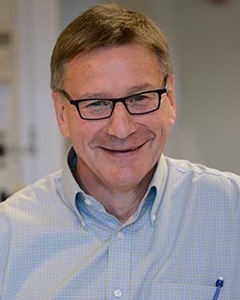 Stanley Riddell’s, MD, research focuses on understanding the contributions of distinct human T cell subsets to protective immunity to pathogens and tumors and on the development and clinical application of adoptive T cell therapy for viral diseases and cancer using unmodified and genetically modified antigen-specific T cells of defined compositions. The work has encompassed the discovery of target antigens for human viruses and cancer and evaluating the adoptive transfer of antigen-specific T cells to treat human diseases.
Stanley Riddell’s, MD, research focuses on understanding the contributions of distinct human T cell subsets to protective immunity to pathogens and tumors and on the development and clinical application of adoptive T cell therapy for viral diseases and cancer using unmodified and genetically modified antigen-specific T cells of defined compositions. The work has encompassed the discovery of target antigens for human viruses and cancer and evaluating the adoptive transfer of antigen-specific T cells to treat human diseases.
Dr. Riddell was principal investigator on the first human trial to adoptively transfer T cell clones to prevent cytomegalovirus infection after allogeneic bone marrow transplantation and on four subsequent FDA approved human trials of T cell therapy, including the first efforts to treat relapsed leukemia after hematopoietic stem cell transplantation with leukemia-reactive T cells and the first human trial of CAR-T cells of defined subset composition. These studies required the development of techniques for isolation, expansion, genetic modification, and reinfusion of T cells, and for monitoring patient safety, cell persistence, migration and function. Many of these methods are now employed broadly in the field of adoptive immunotherapy for cancer.
The lab has investigated subsets of naïve and memory T cells and how their intrinsic qualities may enable superior persistence and efficacy after adoptive transfer to treat human malignancies. This has led to the development of novel cell selection methods to rapidly isolate defined cell populations for clinical trials in which T cells are modified with chimeric antigen receptors or T cell receptors for adoptive immunotherapy. Recent work in the lab has focused on the optimal design of synthetic receptors that can be introduced into T cells to redirect specificity and signal effector function to recognize and eliminate tumor cells.
Q & A with Dr. Riddell
Please provide a brief overview of your career and explain the position you currently hold.
"For the past 25 years, my lab at the Fred Hutchinson Cancer Research Center has focused on understanding the contributions of distinct human T cell subsets to protective immunity to pathogens and tumors and on the development and clinical application of adoptive T cell therapy for viral diseases and cancer using unmodified and genetically modified antigen-specific T cells of defined compositions.
The work has encompassed the discovery of target antigens for human viruses and cancer and evaluating the adoptive transfer of antigen-specific T cells to treat human diseases. This has led to the development of novel cell selection methods to rapidly isolate defined cell populations for clinical trials in which T cells are modified with chimeric antigen receptors or T cell receptors for adoptive immunotherapy.
Recent work in the lab has focused on the optimal design of synthetic receptors that can be introduced into T cells to redirect specificity and signal effector function to recognize and eliminate tumor cells. I am currently a Member in the Program in Immunology and Director of the Integrated Immunology Research Center at the FHCRC."
What does a normal work week look like for you?
"My week is comprised of meetings with my lab members to discuss experimental data and plan upcoming experiments and with the clinical team that is conducting phase 1 and phase 2 clinical trials of gene-modified T cells. I spend a significant amount of time planning and writing research grants and in administrative functions related to junior faculty recruitment and development and program planning."
What do you enjoy about your career now, and is there anything you wish you would have done differently during your career path?
"The greatest enjoyment is reviewing new data with trainees in the lab and seeing the excitement they (and I) experience when experiments "work" or generate new ideas. The translation of immunotherapy into the mainstream of patient care is incredibly rewarding for the field. Scientific discovery is addictive and I feel very fortunate to have fallen into this career path."
Can you provide a brief summary of what topics you would like to cover at your expert table?
"Advances in adoptive T cell therapy and the convergence of synthetic biology and immunotherapy. Research challenges and opportunities. The intersection of academic research and biotechnology -- this is more relevant now in cancer immunotherapy than at any time in the past."
Jeffrey Schlom PhD – National Cancer Institute, National Institutes of Health
Table Topic: Clinical-Translational Research
Biography
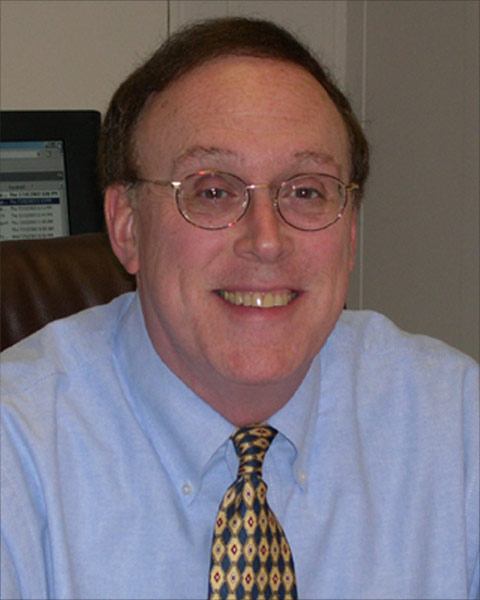 Jeffrey Schlom, PhD, is the Chief of the Laboratory of Tumor Immunology and Biology, Center for Cancer Research at the National Cancer Institute, NIH. He directs a translational research program focusing on the design and development of new cancer immunotherapies and immunotherapeutic strategies.
Jeffrey Schlom, PhD, is the Chief of the Laboratory of Tumor Immunology and Biology, Center for Cancer Research at the National Cancer Institute, NIH. He directs a translational research program focusing on the design and development of new cancer immunotherapies and immunotherapeutic strategies.
The program takes advantage of the latest advances in genomics and immunology through hypothesis-generating preclinical research and translates these findings into paradigm-shifting science-based clinical trials. Novel immunotherapies designed or developed in this program include therapeutic cancer vaccines, monoclonal antibodies that can “remove the brakes” on the immune system (i.e., checkpoint inhibitors), and other immune modulators that activate the immune system.
Dr. Schlom’s studies have shown that when two or more immune-based therapies are used in combination, each agent can activate different arms of the immune system, leading to enhanced anti-tumor activity without compounding toxicities. Emphasis is placed on the development of “off the shelf” therapeutics that can be widely distributed and evaluated at multiple cancer research centers. Dr. Schlom’s program employs the principle that immunotherapy regimens should also be part of an Immuno-Oncology platform. His studies have shown that when immunotherapies are used with so-called “non-immune”‒based therapies, such as certain chemotherapeutic agents, small molecule targeted therapeutics, hormonal therapies, or radiation, tumors are rendered more susceptible to immune-mediated attack, resulting in improved anti-tumor effects. Dr. Schlom has also developed a spectrum of immune assays that interrogate numerous components of the immune system, to help identify which patients will most likely benefit from immunotherapy.
Dr. Schlom received his PhD from the Waksman Institute of Rutgers University and serves on the editorial boards of numerous scientific journals and committees, and has received numerous awards. He holds a wide range of patents in the areas of immunotherapy. Dr. Schlom has authored more than 700 scientific publications.
Q & A with Dr. Schlom
What does a normal work week look like for you?
"A normal week includes meeting with staff to go over planned projects or to go over data, writing manuscripts and reviewing drafts of manuscripts, meeting with collaborators, and reviewing and responding to lots of emails."
What do you enjoy about your career now, and is there anything you wish you would have done differently during your career path?
"The ability to innovate with the goal of enhancing clinical benefit and quality of life of cancer patients."
Can you provide a brief summary of what topics you would like to cover your Expert table?
"Emerging concepts in cancer immunotherapy Immune combinatorial therapies. Different career paths in immunotherapy."
David Zaharoff, PhD – University of Arkansas
Table Topic: Career Path: How to Survive in Academia
Biography
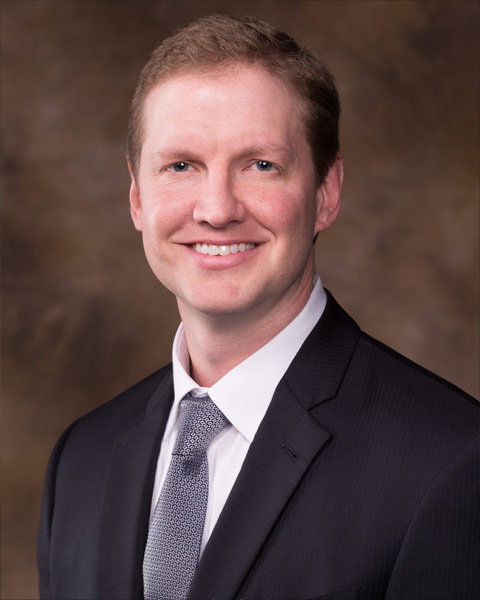 David A. Zaharoff, PhD, is an Associate Professor, Interim Department Head and holder of the 21st Century Endowed Professorship in Biomedical Engineering at the University of Arkansas. He has a BS in Mechanical Engineering from the University of Illinois and a PhD in Biomedical Engineering from Duke University. He received the Ruth L. Kirschstein National Research Service Award as a postdoctoral fellow in the Laboratory of Tumor Immunology and Biology at the National Cancer Institute (NCI) and the NCI Transition Career Development Award as an independent investigator at the University of Arkansas.
David A. Zaharoff, PhD, is an Associate Professor, Interim Department Head and holder of the 21st Century Endowed Professorship in Biomedical Engineering at the University of Arkansas. He has a BS in Mechanical Engineering from the University of Illinois and a PhD in Biomedical Engineering from Duke University. He received the Ruth L. Kirschstein National Research Service Award as a postdoctoral fellow in the Laboratory of Tumor Immunology and Biology at the National Cancer Institute (NCI) and the NCI Transition Career Development Award as an independent investigator at the University of Arkansas.
Prof. Zaharoff directs an interdisciplinary, translational research program focusing on the design, development and evaluation of novel immunotherapies for cancer. Using diverse themes in biomaterials, nanotechnology, transport phenomena and tumor immunology, his lab develops biomaterials-based strategies capable of manipulating the delivery of, and hence the host immune response to, cancer vaccines and immunotherapies. In particular, the lab specializes in engineering polysaccharide-based delivery platforms for recombinant cytokines and antigens with particular interest in bladder cancer, breast cancer and the IL-12 family. He is also the founder of a startup biopharmaceutical company called VivImmune that seeks to commercialize immunotherapies discovered in the Zaharoff lab.
Q & A with Dr. Zaharoff
Please provide a brief overview of your career and explain the position you currently hold.
"Zaharoff received his BS in mechanical engineering from the University of Illinois at Urbana-Champaign. He received his PhD in biomedical engineering from Duke University. He was a Cancer Research Training Award and Ruth L. Kirschstein National Research Service Award postdoctoral fellow in the Laboratory for Tumor Immunology and Biology at the National Cancer Institute.
He joined the University of Arkansas in 2009 and helped found the Department of Biomedical Engineering in 2012. Zaharoff was the Interim Head of biomedical engineering at Arkansas, prior to joining the Joint Department of Biomedical Engineering at UNC and NC State. Currently, as an NIH-funded associate professor, Zaharoff leverages his multidisciplinary training to engineer translatable biomaterials-based delivery systems to control the spatiotemporal distribution of immunomodulatory agents, with a particular interest in IL-12 family cytokines and immune checkpoint inhibitors."
What does a normal work week look like for you?
"First of all, there is no normal work week. Every day is 30% planned and 70% unplanned. Most of what I do seems to be helping people solve and anticipate problems, whether those people are my students, my staff, my colleagues or even my Dean."
What do you enjoy about your career now, and is there anything you wish you would have done differently during your career path?
"I, like most faculty, value autonomy above all else. I really enjoy being able to ask the questions I'm interested in and helping students achieve their goals. As far as doing things differently, I could have been more patient and waited for an opportunity at a school with a cancer center for my first faculty job."
Can you provide a brief summary of what topics you would like to cover your Expert table?
"How to get a faculty position (I've hired 5 assistant professors); how to win grants; how to prioritize and focus as an assistant professor; how to write/communicate better."





Important Dates
Regular Abstracts Published in JITC
November 8, 2016
Late-Breaking Abstracts Published in JITC
December 8, 2016
Thank You, Supporters!
Thank you, SITC 2016 supporters. Because of your generosity, SITC 2016 was a great success!
Interested in supporting other SITC programs? Confirm your support today!
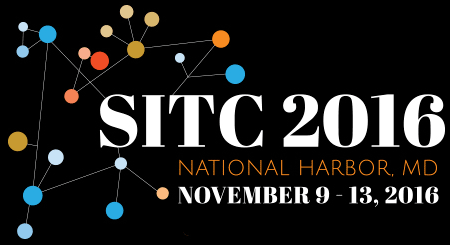
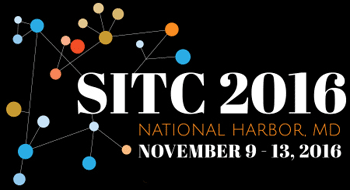
Connect with SITC!